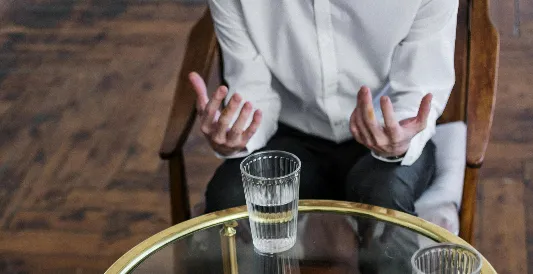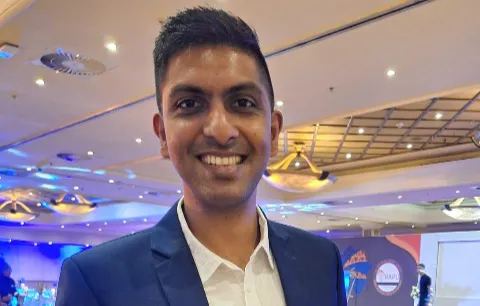Improving men’s mental health involves difficult conversations
Breaking the silence

Statistics show that even though more women end up in the emergency room of hospitals for suicide attempts, more men actually die from suicide in South Africa.
Image: Cottonbro Studio/Pexels.com
OVER the years, I have seen far more women in my consulting room than men. Although men do attend psychotherapy sessions, it is far more common that women seek psychological help when life’s problems become too much to handle. This is a surprising and contradictory situation.
Statistics show that even though more women end up in the emergency room of hospitals for suicide attempts, more men actually die from suicide in South Africa. One of the reasons for this disparity is that men usually use more lethal methods of self-harm and hide their despair from friends and family. You would expect that if so many men find themselves alone and broken, that they would reach out for appropriate help, rather than suffer in silence.
Sadly, society shapes men to believe that they are invincible superheroes who should hide their vulnerabilities and pretend to be coping. This is obviously not healthy. We need to gently encourage all men to become comfortable with exploring difficult feelings, past mistakes, failed dreams, unfulfilled relationships, and dangerous coping mechanisms, such as anger, drugs, alcohol, and violence.
Positive change is forged through the fires of difficult conversations. The topic of men’s mental health has received far more attention in recent years following the suicides of public personalities. In 2022, rapper Riky Rick died by suicide, aged 34, just two-years after opening up about his mental health challenges in a media interview. His stepfather is Kumi Naidu, the Chatsworth-born climate change activist. Ironically, Naidu’s own mother died by suicide when he was a teenager.
A few years ago, Naidu spoke at the Wellbeing Summit for Social Change, in Spain, where he emphasised how trauma was passed down from one generation to the next, using his own life as an example. His message was clear: It is so important for each generation to actively process, reflect on, and work through the traumas that they have inherited from their parents and grandparents.
While we have a lot to be thankful for from our forbearers, they are also responsible for the heavy baggage that we carry with us throughout our lives. Facing these truths is not easy, because this means that we have to let go of the feel-good nostalgia of “the good old days” and take a hard look at how our past is actually part of our problems.
Men, in particular, seem to struggle to express these difficult truths about their lives.
In his autobiography Khamr: The Making of a Waterslams, Jamil F Khan writes about his complex relationship with his father, Farouk, and his father’s struggle with anger and alcoholism.
In one poignant extract, Khan writes: “Without knowing it, I saw the effects of patriarchy on my father. He was fully incarcerated in an emotional and mental prison. Having internalised the responsibility of the sole breadwinner after prohibiting my mother from working, he took on a burden he could not bear… What it means to be a man was unbearable and yet non-negotiable (therefore) he decided to escape through the neck of a whisky bottle. He would rather poison his body than live fully present.”
I highly recommend Khan’s book. It is written with both tenderness and anger as he tries to understand the reason for his parents’ troublesome behaviour. Through his own writing, I imagine that Khan was trying to lessen the baggage of intergenerational trauma and not repeat the same cycles of self-harm.
Change has to start somewhere. Why not with you? How can men begin to heal? I have a few suggestions. Firstly, accept that you are only human and with your humanity comes vulnerability.
Secondly, know that mental health struggles such as grief, depression, or addictions, are common. You are not alone, so speak to somebody that you trust. Thirdly, nothing will change if you repeat the same behaviours over and again. Fourth, drowning your feelings with drugs or alcohol will further damage your mind and your body. Fifth, there is always hope – because professional help is available if you have the courage to reach out.
For a referral to a psychologist, contact your local GP or get a referral letter from your closet primary healthcare clinic. The National Health hotline is 0800 029 999. To find a support group contact the South African Depression and Anxiety Group (Sadag) on 0800 456789 or Alcoholics Anonymous (AA) on 0861435722.

Suntosh R Pillay
Image: Facebook
Suntosh R Pillay is the chief clinical psychologist for eThekwini in the KZN Department of Health. He writes in his personal capacity.
